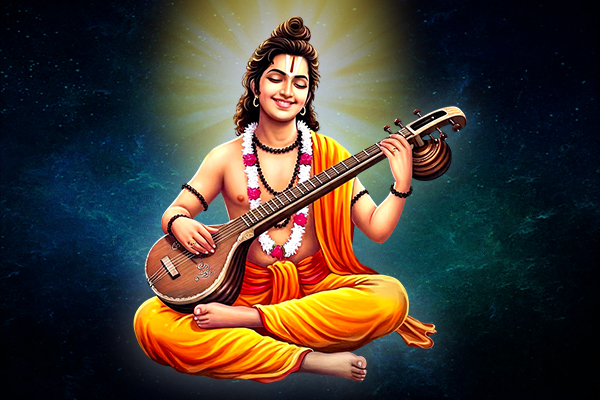
Narada Jayanti, a sacred day of profound spiritual significance, honors the birth of Devarishi Narada, the celestial sage and divine messenger of the gods. This auspicious occasion is dedicated to the glory of wisdom, devotion, and selfless service of Narada Muni, renowned for his unwavering devotion to Bhagwan Vishnu and his role in spreading divine knowledge, symbolizes the power of Bhakti (devotion) and the transcendence of worldly attachments.
In 2026, Narada Jayanti will be observed on
Saturday, May 2, 2026
. This sacred day is a time for prayers, chanting, and deep contemplation on divine wisdom. Devotees honor Narada Muni by reciting Vishnu mantras, studying scriptures, and engaging in discussions on spiritual enlightenment. It is believed that observing Narada Jayanti with sincerity removes ignorance, bestows clarity of thought, and strengthens one’s devotion to the Divine.
The festival serves as a reminder of the transformative power of divine knowledge, the importance of unwavering faith, and the eternal guidance of Bhagwan Vishnu through his beloved devotee, Narada Muni.
Festival Date, Time, Muhurat & Tithi
Narada Jayanti on Saturday, May 2, 2026
Pratipada Tithi Begins - 10:52 PM on May 01, 2026
Pratipada Tithi Ends - 12:49 AM on May 03, 2026
Note: Sunrise and sunset vary by region and date due to India's geographical diversity. For exact timings, please refer to local astronomical data.
Significance & Importance of Narada Jayanti
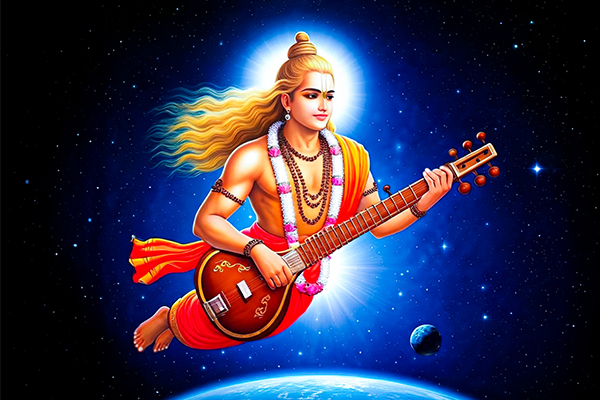
Narad Muni, often referred to as the ‘God of Communication’, is one of the most revered sages in Hindu tradition. He is believed to be among the seven great sages (Saptarishis), traveling across the three worlds (Triloka)—Swarga (heaven), Prithvi (earth), and Patala (netherworld)—spreading divine knowledge and conveying messages between deities, sages, and humans. His role as the celestial messenger has been extensively described in ancient Hindu scriptures such as the Rig Veda, Puranas, and the Mahabharata, where he is depicted as an ardent devotee of Bhagwan Vishnu, tirelessly working to uphold dharma. Through his wisdom, eloquence, and mastery of communication, he played a crucial role in shaping many significant events in Hindu mythology.
The festival of Narada Jayanti is dedicated to this extraordinary sage, celebrating his birth and his invaluable contributions to spiritual wisdom and divine discourse. His unparalleled ability to disseminate knowledge, resolve conflicts, and guide seekers makes him an inspiration for scholars, spiritual aspirants, and those in the field of communication. Due to his unmatched expertise in conveying messages and influencing thought, Narada Jayanti is particularly observed by publication houses, journalists, and media professionals, acknowledging his pioneering role as the first divine communicator.
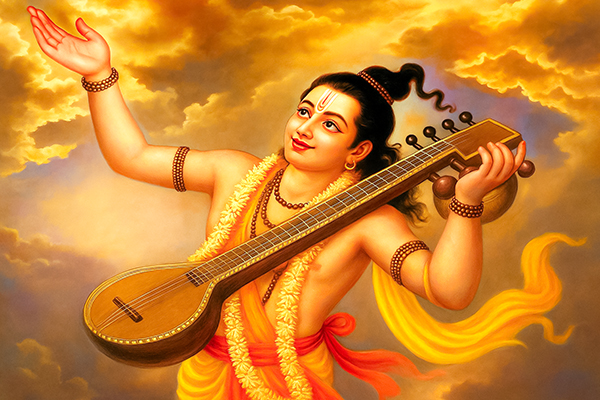
Narad Muni is also revered by musicians and artists, as he is believed to have created the Veena, a divine musical instrument, and contributed to the development of Sama Veda, which emphasizes music and melody in Vedic chanting. His deep understanding of sound, rhythm, and intonation made him a revered figure in the field of music and the performing arts. Musicians and artists often seek his blessings for creative inspiration, mastery in their craft, and divine guidance in expressing their art.
A highly learned sage, Narad Muni was well-versed in the Vedas, Upanishads, and Puranas. His knowledge extended beyond religious scriptures—he was proficient in grammar, prosody, rhetoric, and philosophical discourse, making him an unparalleled intellectual of his time. His exceptional memory, logical reasoning, and analytical skills enabled him to comprehend and resolve complex situations with remarkable clarity. Throughout Hindu epics, he is portrayed as a counselor and strategist, offering invaluable advice to both gods and mortals, often averting conflicts and guiding rulers toward righteous governance.
Narad Muni’s legacy continues to inspire wisdom, devotion, and the pursuit of knowledge. His teachings emphasize the power of words, the importance of truthful communication, and the transformative potential of devotion to Bhagwan Vishnu. By celebrating Narada Jayanti, devotees honor his timeless contributions to spirituality, music, and communication, seeking his blessings for wisdom, eloquence, and success in their pursuits.
The Legends of Narada Jayanti
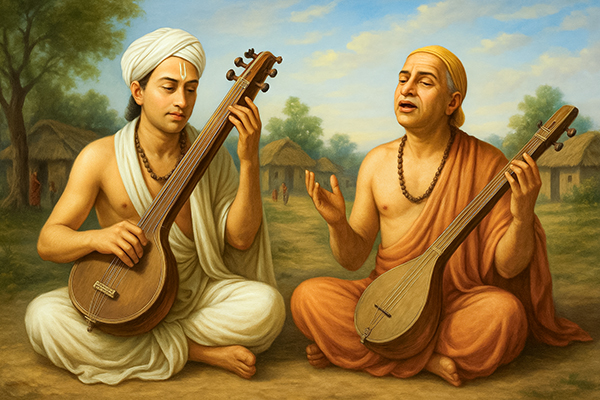
Narada Muni, the celestial sage revered for his wisdom, eloquence, and unwavering devotion to Bhagwan Vishnu, has several legends surrounding his origin. He is widely regarded as the Manas Putra (mind-born son) of Bhagwan Brahma, yet some Puranic texts describe him as the son of Sage Kashyapa. Regardless of his origins, his presence has been felt across all the great Hindu epics and scriptures, where he is portrayed as the divine seer who guides souls towards salvation. According to a mystical belief, Narada is said to have reincarnated in the Kali Yuga as the saint-poets Thyagaraja and Purandaradasa, continuing his mission of propagating devotion through sacred music.
Throughout the Satya, Treta, and Dwapara Yugas, Narada Muni appeared carrying his divine Veena, weaving his influence into pivotal moments of history. Though often labeled the ‘initiator of quarrels’, his actions were never rooted in malice but in the higher purpose of eradicating evil and preserving dharma. One such instance recounts how he played a crucial role in stirring conflicts between devas (gods) and asuras (demons), ultimately leading to the destruction of malevolent forces. Another tale speaks of how he inspired the sons of Daksha to renounce worldly life, urging them to embrace asceticism rather than marriage. Furious, Daksha cursed Narada to wander aimlessly for eternity, which he willingly accepted, using his divine movement to spread spiritual wisdom across the three worlds.
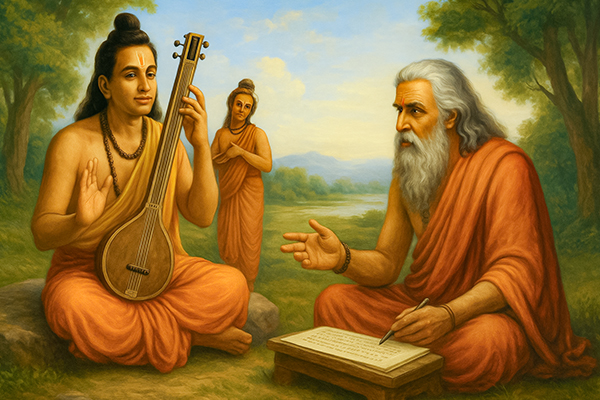
Narada’s influence extended to some of the greatest sages and texts of Hinduism. When Sage Vedavyasa meticulously divided the Vedas into Rig, Yajur, Sama, and Atharva, composed the Puranas, and wrote the epic Mahabharata, he still felt an inexplicable sense of incompleteness. Sensing his distress, Narada appeared and revealed that while Vyasa’s works were profound, they lacked the exclusive glorification of Bhagwan Vishnu, the Supreme Being. In response to Narada’s divine guidance, Vyasa composed the Bhagavata Purana, one of the most revered scriptures of devotion. Similarly, it was Narada who first spoke of Bhagwan Rama’s virtues to Sage Valmiki, inspiring him to compose the Ramayana, the immortal epic of dharma and righteousness.
Narada Muni was not only a spiritual luminary but also a pioneer in various disciplines. He was an expert in astronomy, music, and the arts, composing treatises such as Narada Smriti and Narada Shiksha, which discuss phonetics and grammar. He authored the Narada Purana, filled with divine stories, and the Narada Bhakti Sutras, which beautifully delineate the path of devotion in eighty-four aphorisms. His wisdom transcended scriptural knowledge, making him a master of Sankhya and Yoga philosophies. Narada was also instrumental in educating Yudhishthira on the virtues of humility and righteous governance, while his actions laid the foundation for the birth of Bhagwan Dattatreya, the embodiment of divine wisdom.
Many consider Narada to be an Avesha Avatar of Vishnu, divinely empowered to perform miracles on behalf of the Bhagwan. His unshakable devotion to Narayana granted him supernatural abilities, enabling him to travel effortlessly across the three realms—Aakash (Heaven), Paatal (Netherworld), and Prithvi (Earth). Ever restless yet eternally devoted, he roamed the cosmos singing the divine name, ‘Narayan, Narayan’, using his Veena to spread the message of devotion. As the chief of the celestial musicians (Gandharvas), his mastery over music was unparalleled, and he is often depicted as the first divine journalist, constantly transmitting vital information across the universe.
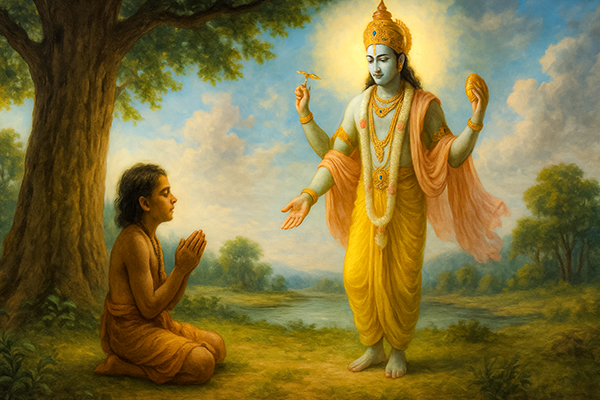
One fascinating legend describes Narada’s previous life, in which he was known as Upbarana, a celestial being filled with pride over his beauty. During a grand performance for Bhagwan Brahma, where divine nymphs (Apsaras) danced to please the Creator, Upbarana, out of arrogance, disguised himself as a woman and joined the dance. Displeased by this act of vanity, Brahma cursed him to be born in a Shudra Yoni (lower birth). As a result, Upbarana was reborn to a Shudra woman, who passed away when he was just five years old. Orphaned and grief-stricken, the young child turned toward deep meditation and devotion. One day, while meditating under a tree, he received a divine vision of Bhagwan Vishnu, who assured him that although he would not attain liberation in that life, in his next birth, he would be blessed with divine knowledge and spiritual wisdom. True to the Bhagwan’s words, in his next birth, he emerged as Narada Muni, the enlightened sage, and the only one to witness Vishnu’s Paramatma form, thus attaining the highest realization.
The significance of Narada Jayanti lies in the celebration of his unwavering devotion, profound wisdom, and his role as the cosmic guide. His life is a testament to the power of divine knowledge, devotion, and the spoken word, making him one of the most influential figures in Hindu tradition. On this auspicious occasion, devotees honor his timeless contributions to dharma, music, and the spiritual upliftment of humanity, seeking his blessings to tread the path of righteousness and devotion.
Fascinating Facts About Devrishi Narada
The Eternal Brahmachari and Devout Sage
Devrishi Narada is revered as a Brahmachari (celibate ascetic) and is commonly known as Narada Muni, a celestial sage who traverses the three worlds, spreading divine wisdom and devotion.
The Son of Divine Creators
According to Hindu tradition, Narada is believed to be the son of Bhagwan Brahma, the Creator of the Universe, and Goddess Saraswati, the embodiment of wisdom and knowledge. His birth is considered a divine manifestation of wisdom, communication, and devotion.
The Eternal Chant of 'Narayana, Narayana'
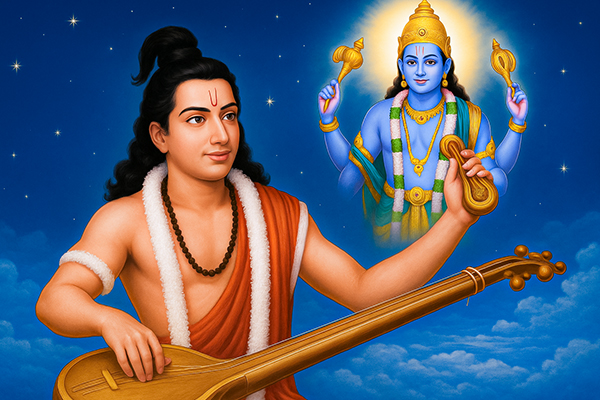
Before and after every speech, Narada fervently utters 'Narayana, Narayana', a testament to his unwavering devotion and veneration for Bhagwan Vishnu. His chants resonate across the cosmos, reinforcing his role as an eternal devotee of the Supreme Bhagwan.
Deva Rishi – A Sage with Divine Powers
Narada holds the esteemed title of Deva Rishi (Divine Sage), signifying that his spiritual prowess and knowledge rival those of celestial beings (Devas). He moves effortlessly between the earthly, heavenly, and nether realms, bridging the gap between mortals and divine forces.
The First Divine Messenger and Cosmic Journalist
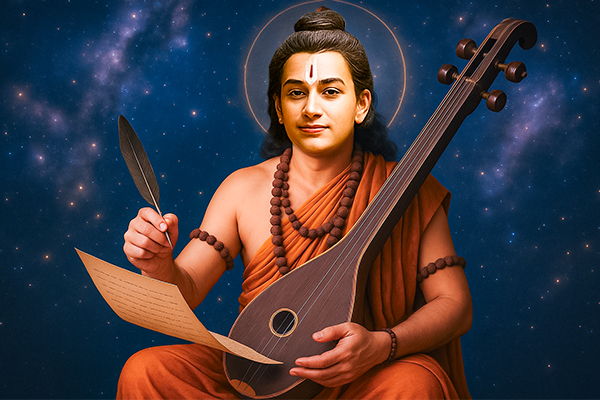
Often described as a messenger of the gods, Narada is renowned for his ability to relay news and secrets from every corner of the universe. He is the first journalist in history, a fact honored in India as ‘Patrakar Diwas’ (Journalists’ Day). While he is known for stirring controversies, his intentions are never malicious—his actions serve a higher cosmic purpose, ensuring the triumph of righteousness.
The Sacred Abode of Narada and Vishnu
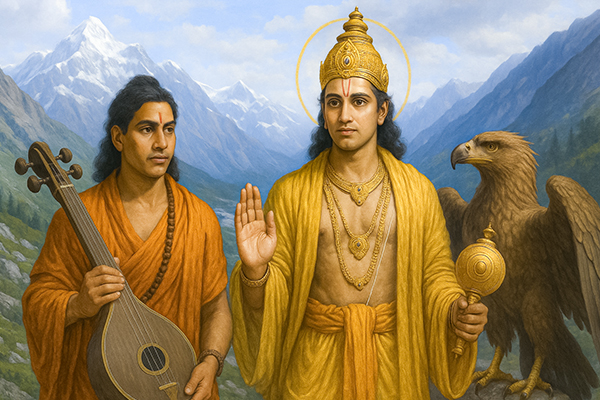
The Rigveda, the oldest of the Vedas, mentions that Bhagwan Vishnu resided in Badrikashram, located in present-day Uttarakhand, near the Indo-China border. Narada, a close companion of Vishnu, is believed to have hailed from Hoon Desh, a region within this sacred mountainous terrain. Their divine companionship flourished in these mystical lands, where they often traveled together, aided by Garuda, the celestial eagle and vehicle of Vishnu.
Master of 64 Arts and the Essence of Devotion
Narada Muni is a master of 64 vidyas (arts and sciences) and is revered for his unparalleled skill in communication. He is credited with spreading the philosophy of Bhakti (devotion) and teaching humanity the essence of a righteous and honorable life. His teachings emphasize the power of unwavering faith, music, and selfless devotion as the path to liberation.
A Sacred Shrine Dedicated to Narada
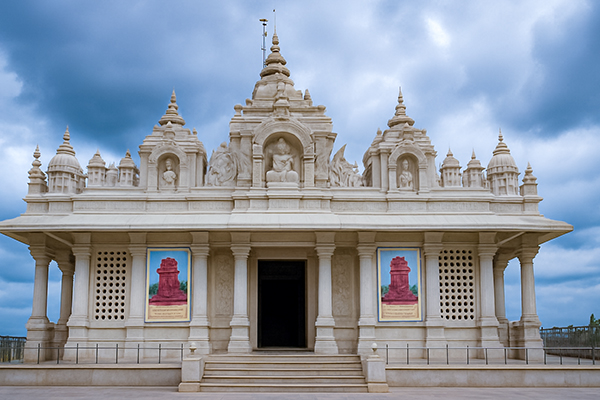
A temple dedicated to Narada stands on the serene island of Naradagadde, a place where the sage is believed to have performed intense penance. This picturesque island, surrounded by natural beauty, attracts numerous devotees who seek his blessings and divine wisdom.
How to celebrate Narada Jayanti
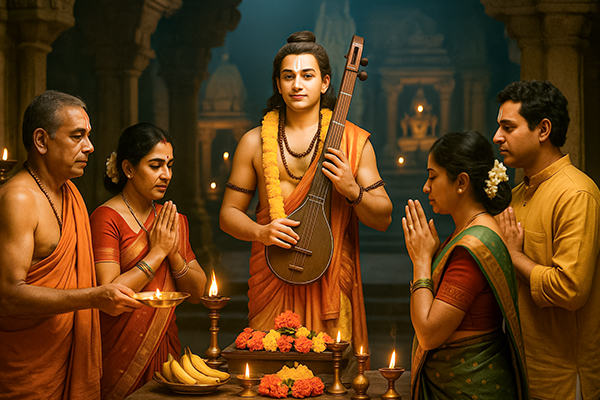
Narada Jayanti is observed with great reverence by devotees who seek wisdom, devotion, and the ability to communicate effectively. Since Devrishi Narada is known as the divine messenger and the first journalist, this day is also significant for those involved in the fields of knowledge sharing, communication, and music.
The day begins with devotees taking an early morning bath and offering prayers to Bhagwan Vishnu, as Narada Muni is regarded as his ardent devotee. Many people observe a day-long fast, dedicating their prayers to seeking divine wisdom and spiritual upliftment. Reciting Vishnu Sahasranama, Bhagavad Gita, or Narada Bhakti Sutras is considered highly auspicious on this occasion.
Temples dedicated to Bhagwan Vishnu and Sage Narada conduct special pujas and discourses highlighting Narada’s teachings and his role in guiding humanity. Devotees light lamps, offer flowers, and perform Aarti while chanting the name of Bhagwan Vishnu. Some also organize satsangs (spiritual gatherings) where hymns and devotional songs are sung in praise of Narada Muni and Bhagwan Vishnu.
As Narada Muni was also a master of music and the arts, musicians and scholars commemorate this day by performing devotional songs and studying scriptures related to Narada’s contributions. Writers, journalists, and those in the communication field honor Narada as their patron and reflect on ethical reporting and responsible information sharing.
Charitable activities such as feeding the poor, donating educational materials, and helping those in need are considered meritorious on this day. Since Narada Muni was a spiritual guide, spreading knowledge and uplifting others through good deeds aligns with his divine purpose.
Some devotees visit temples or places associated with Narada Muni, such as Naradagadde in Karnataka, believed to be one of the places where he meditated. Pilgrimage to Vishnu temples or sacred sites connected to Narada’s teachings is also undertaken by those seeking spiritual merit.
Narada Jayanti serves as a reminder of the power of devotion, knowledge, and righteous communication. Observing this day with sincerity, engaging in acts of service, and seeking spiritual wisdom helps devotees walk the path of dharma, just as Sage Narada guided countless beings toward the divine truth.
Narada Jayanti Puja Vidhi (Puja Procedure)
.jpg)
Narada Jayanti is a sacred occasion dedicated to honoring Devrishi Narada, the celestial sage known for his devotion to Bhagwan Vishnu and his unparalleled knowledge of the scriptures, music, and communication. Observing this day with proper rituals and prayers is believed to bring wisdom, spiritual elevation, and clarity in thought and speech.
The puja is performed with utmost devotion, seeking the blessings of Sage Narada and Bhagwan Vishnu for divine guidance and righteousness in life.
- Purification and Sankalp: Devotees begin the day with an early morning bath, signifying inner and outer purification. The worship space is cleaned, and a sanctified area is prepared for the puja. The devotee then takes a sankalp (sacred resolve) to perform the puja with sincerity, praying for wisdom, devotion, and the ability to communicate truthfully and effectively, just like Sage Narada.
- Invocation of Bhagwan Vishnu and Sage Narada: A picture or idol of Bhagwan Vishnu is placed at the center of the puja altar, along with an image or symbolic representation of Narada Muni. Devotees invoke their divine presence by chanting the Narada Stotra and Vishnu Sahasranama. Incense sticks, diyas (lamps), and sacred offerings such as flowers, fruits, and Tulsi leaves are arranged for the puja.
- Offerings and Prayers: A kalash (sacred pot filled with water) is placed near the deity and is worshipped as a representation of purity and divinity. Offerings such as sandalwood paste, turmeric, kumkum, and akshat (rice grains) are applied to the idols or images. A special offering of panchamrit (a mixture of milk, honey, curd, ghee, and sugar) is prepared and later distributed as prasad. Devotees also offer betel leaves, fruits, and sweets while chanting hymns in praise of Narada Muni.
- Bhajan and Aarti: Since Narada Muni is renowned for his devotion to Bhagwan Vishnu and his musical prowess, singing bhajans and devotional songs forms an essential part of the puja. Devotees perform Aarti with camphor or ghee lamps, seeking divine blessings. The sound of bells and conch shells fills the atmosphere, creating an aura of spiritual bliss.
- Charity and Seva: Following the completion of the puja, acts of charity and seva (selfless service) are encouraged. Devotees distribute food, clothes, and donations to the needy, as Narada Muni emphasized the importance of serving humanity. Some also gift scriptures or devotional books to spread knowledge, in alignment with the sage’s wisdom-sharing nature.
Narada Jayanti puja is not merely a ritual but a spiritual practice that fosters devotion, wisdom, and righteous communication. By sincerely performing this puja, devotees seek to imbibe the virtues of Sage Narada—his dedication to truth, his unwavering faith in Bhagwan Vishnu, and his ability to uplift others through knowledge and devotion. The observance of this sacred day inspires one to lead a life rooted in dharma, wisdom, and unwavering devotion to the divine.
Narada Jayanti Puja Mantra
Narada Stuti Mantra (Glory of Sage Narada)
This mantra praises Narada Muni’s knowledge, devotion, and role as the messenger of Bhagwan Vishnu:
ॐ नमो भगवते नारदाय नमः॥
Om Namo Bhagavate Naradaya Namah॥
Meaning:
'Salutations to the divine sage Narada, the beloved devotee of Bhagwan Vishnu.'
Narada Jayanti Vrat Vidhi (Fasting Procedure)
.jpg)
Observing a fast on Narada Jayanti is a sacred practice that enhances spiritual wisdom and devotion. Devotees undertake this vrat (fast) with sincerity, following specific rituals to honor Devrishi Narada and seek his blessings for knowledge, humility, and righteousness.
Sankalp (Taking the Vow)
Before sunrise, devotees wake up early, take a holy bath, and wear clean, sattvic (pure) clothes. They then sit in front of the deity's image or idol and take a vow (sankalp) to observe the fast with full devotion. The sankalp is performed by offering water in the right palm while chanting prayers to Bhagwan Vishnu and Sage Narada, seeking their grace for a successful and blessed vrat.
Fasting Rules and Observances
The fast can be either nirjala (without water) or phalahar (consuming only fruits, milk, and nuts) based on one’s capacity and health. Strictly avoiding grains, pulses, onion, garlic, and tamasic (impure) foods is essential. Devotees engage in reading scriptures, reciting Vishnu and Narada Muni’s hymns, and practicing self-discipline through meditation and spiritual discourse. Charity, helping the needy, and speaking only truthfully are also considered vital aspects of the vrat.
Puja and Devotional Activities
Throughout the day, devotees perform puja by offering flowers, incense, sandalwood paste, and prasad to Sage Narada and Bhagwan Vishnu. Bhajans and kirtans dedicated to Narada Muni are sung, and his stories from the Puranas are recited. Some also listen to the Narada Bhakti Sutras, which emphasize the significance of devotion. In temples, special discourses and religious gatherings are organized to spread the teachings of Sage Narada.
Parana (Breaking the Fast)
The fast is concluded the next morning, preferably after offering prayers and donating food or essentials to Brahmins or the needy. Before breaking the fast, devotees once again offer gratitude to Narada Muni and Bhagwan Vishnu, seeking wisdom, devotion, and the ability to use their words wisely. The day ends with the partaking of sattvic meals, reinforcing purity and righteousness in one’s thoughts and actions.
Narada Jayanti Vrat Katha (Traditional Fasting Story)
.jpg)
In ancient times, there was a great sage named Devrishi Narada, known as the celestial messenger and the son of Bhagwan Brahma. He was a supreme devotee of Bhagwan Vishnu and wandered across the three worlds, chanting 'Narayana, Narayana.' Despite being a divine being, he once became trapped in the illusion (maya) of the material world, leading to an enlightening incident that became a significant part of his legend.
According to the scriptures, Narada once wished to test his spiritual strength and approached Bhagwan Vishnu with great pride, declaring that he had conquered all worldly desires. Smiling, Vishnu decided to teach Narada a lesson in humility. The Bhagwan led him through a scorching desert and, after some time, asked Narada to fetch water from a nearby village. As Narada reached the village, he encountered a beautiful woman and, overcome by Maya (illusion), fell in love with her. Forgetting his divine identity, he married her, raised a family, and lived a life immersed in worldly attachments.
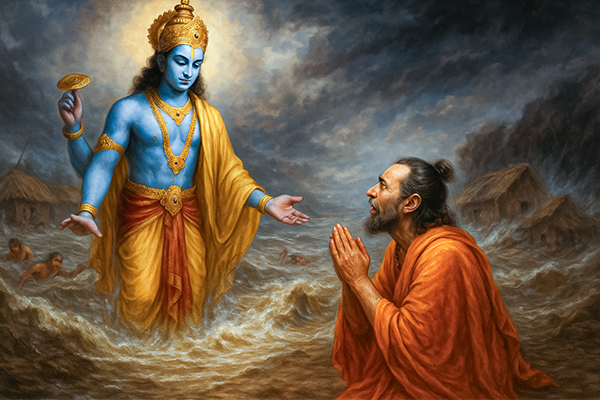
Years passed, and one day, a great flood swept through the village, taking away his wife and children. Devastated, Narada cried out to Bhagwan Vishnu for help. At that moment, Vishnu appeared before him and asked, 'Narada, where is the water you went to fetch?' Narada was suddenly awakened from his illusion and realized that it had all been Vishnu’s divine play (Leela) to humble his pride. He fell at the Bhagwan’s feet, begging for forgiveness. Vishnu smiled and reminded him that true devotion is free from ego, and one must always remember the transient nature of worldly existence.
This profound experience transformed Narada, reinforcing his eternal devotion to Bhagwan Vishnu. He resumed his celestial duties, guiding souls toward righteousness, devotion, and selfless service.
Observing Narada Jayanti Vrat is believed to free devotees from worldly illusions and bestow them with wisdom, humility, and divine knowledge. Devotees who sincerely listen to and reflect upon this story are blessed with unwavering faith and spiritual enlightenment.
Puja Utensils, Essentials
Rudra Centre
brings an extensive collection of Puja Articles which caters to all that is required for daily and special Puja Vidhis. We offer variants of designs and sizes in each category. The list includes handcrafted Puja Mandirs, Puja Pedestals, offering Bowls, Panchpatra, intricately carved Puja Thalis, Abhishek Vessels, in different materials, Pure Silver/German Silver articles like Kalash, set of Shodash Upachara and Several other Puja Articles, which we deliver at your doorstep.
Visit the complete collection:
19 Mukhi (Face) Nepali Rudraksha
_Nepali_Rudraksha.jpg)
Visit our Exclusive Collection:
The 19 Mukhi Rudraksha is one of the most auspicious and rare rudraksha bead. This divine bead is ruled by Bhagwan Narayana who is the supreme of all Bhagwans. The original 19 mukhi rudraksha holds the powers of Bhagwan Narayana and it blesses the wearer with good health, success in all undertakings, immense wealth, and abundance in all spheres. The wearer of the rare 19 mukhi rudraksha bead is blessed with beauty, many virtues, prosperity, and power to fulfil desires along with many virtues by Bhagwan Vishnu and Goddess Laxmi.
Vishnu Puja
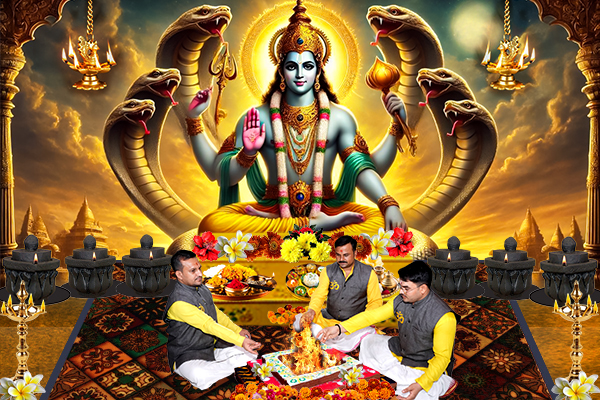
The purpose of performing the Anant Vishnu Puja is to attain blessing of Bhagwan Anant Vishnu and to blessed by materialistic comforts, peace of mind and happiness. This divine form of Bhagwan Vishnu is also worshipped to regain lost wealth. The Vaishnavites, revere Him as the Supreme deity, one who has no beginning and no end.
The benefits of performing the Anant Vishnu puja is as follows:
- Offers divine blessings of Bhagwan Vishnu
- Offers divine blessings of Goddess Lakshmi
- Invites riches and prosperity
- Offers success and growth in all undertakings
- Helps to recover lost wealth
- Offers overall abundance
- Offers contentment and bliss
- Offers protection from negative energies and evil spirits
- Fills life with happiness
Rudra Centre Puja Services is the oldest and most trusted Online Puja Services provider in the world. Over 20 years we have organized Yagnas, Pujas, Homas and Kathas like Ati Rudra Mahayajna, Sahasra Chandi Homa, Akhand Ramayan Paath, Shiva Maha Puran Katha, 4 Prahar Mahashivratri Mahapuja with teams of 100’s of curated priests for the benefit of mankind and our global clientele.
Conclusion
Narada Jayanti stands as a divine tribute to Devrishi Narada, the celestial sage whose wisdom, devotion, and unwavering service to Bhagwan Vishnu illuminate the path of righteousness. As the eternal traveler between the three worlds—Akasha (heaven), Prithvi (earth), and Paatala (netherworld)—Narada symbolizes the transcendence of worldly limitations through the power of divine knowledge and unwavering bhakti. His life teaches that true wisdom is not merely the accumulation of knowledge but the realization of the Supreme Truth, attained through surrender, devotion, and the constant remembrance of the Bhagwan’s name.
Observing Narada Jayanti through fasting, prayer, and sincere reflection allows devotees to invoke his blessings for spiritual enlightenment, eloquence, and the ability to navigate life’s complexities with divine grace. His teachings remind us that devotion, when coupled with wisdom and humility, leads to liberation from the cycle of birth and death. As we honor the sage who carried the divine message across realms, we are inspired to cultivate unwavering faith, selfless service, and the realization that the ultimate truth lies in surrendering to the divine will. Through this sacred observance, may we transcend ignorance and be guided toward the eternal light of Bhagwan Vishnu’s divine presence.


-in-Astrology.jpg)
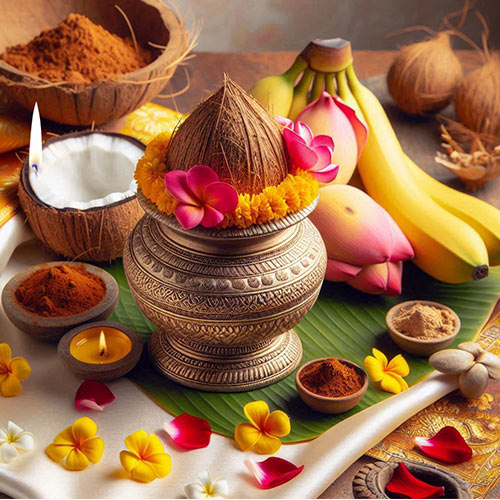
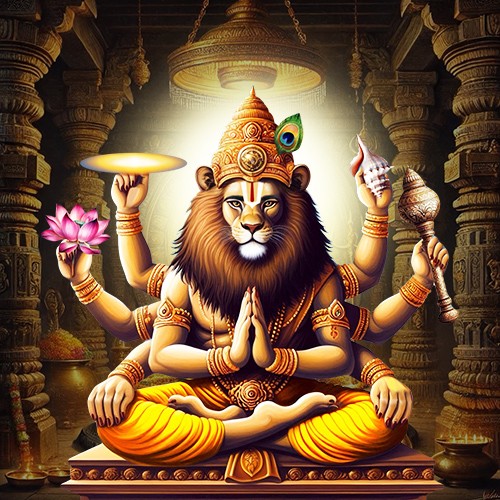
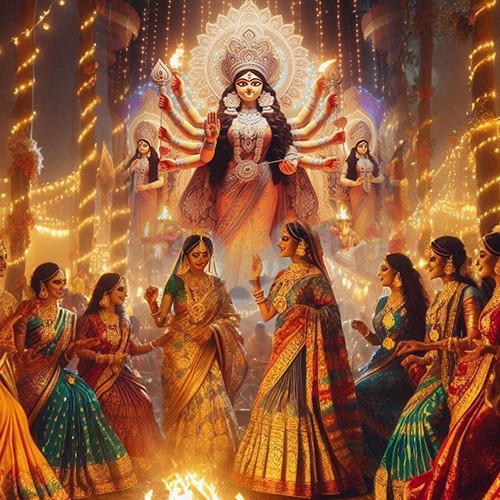
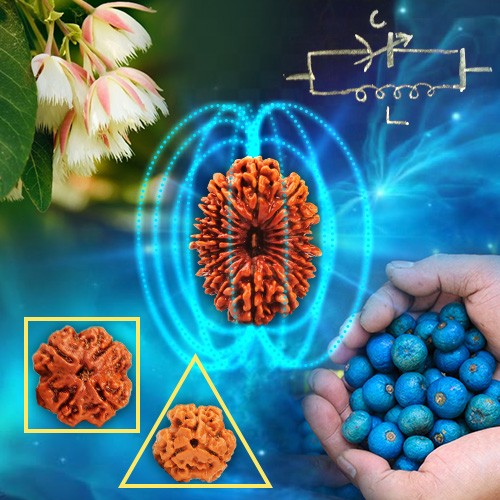

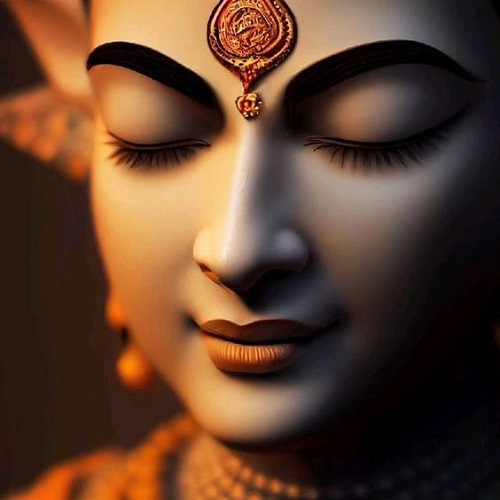
.jpg)
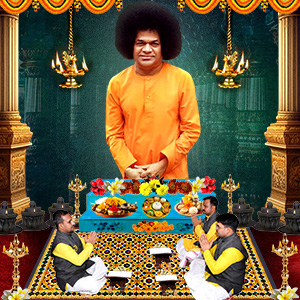
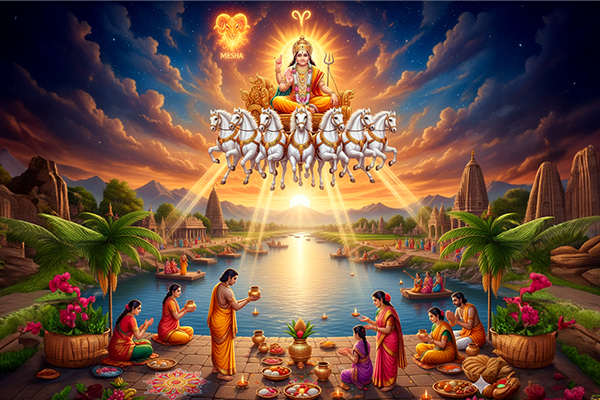
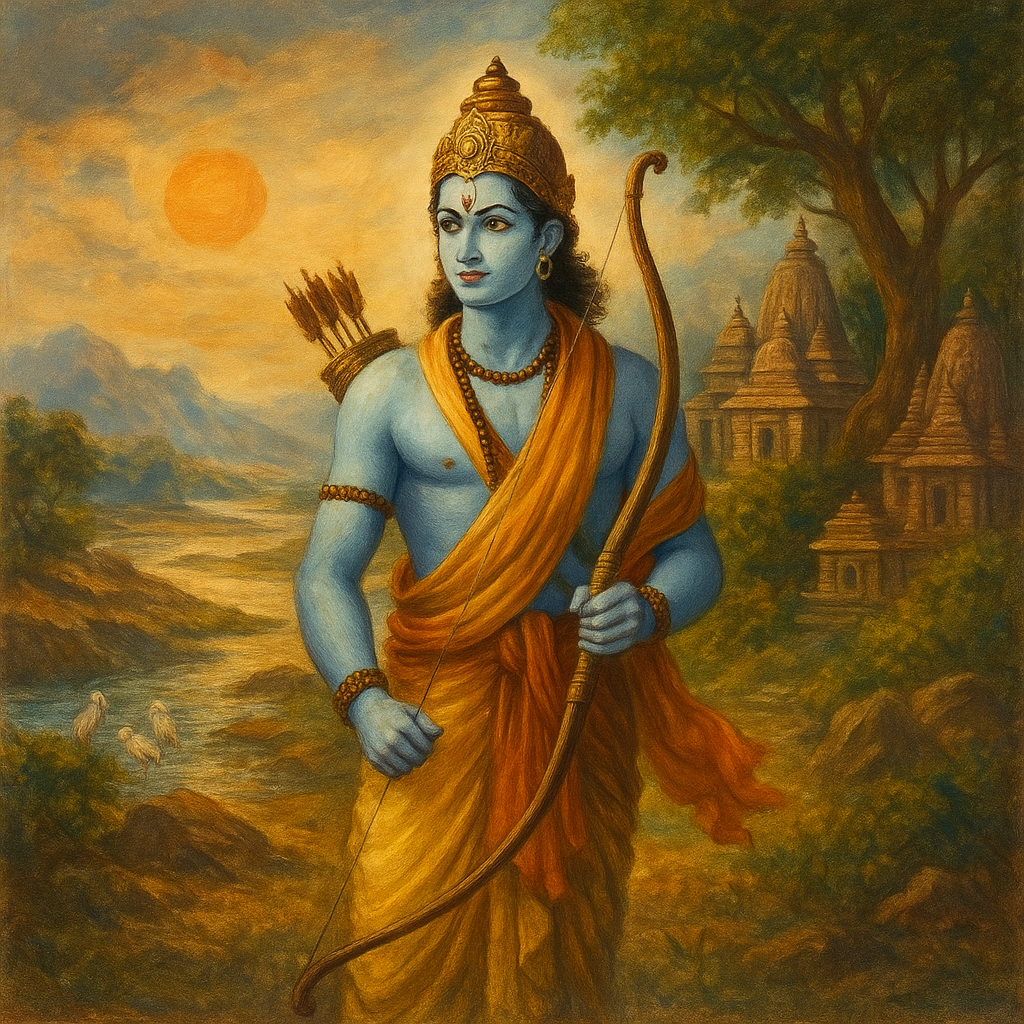
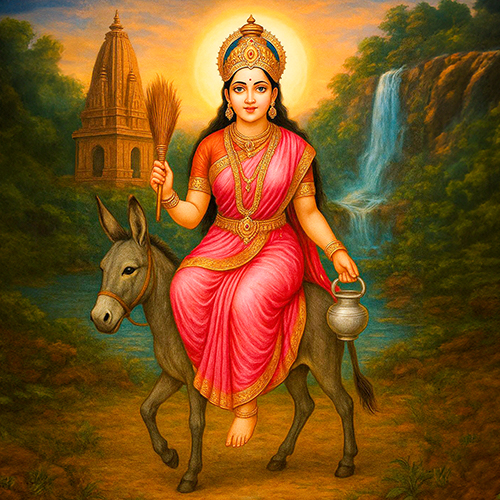
Comments 0
Leave your thought here